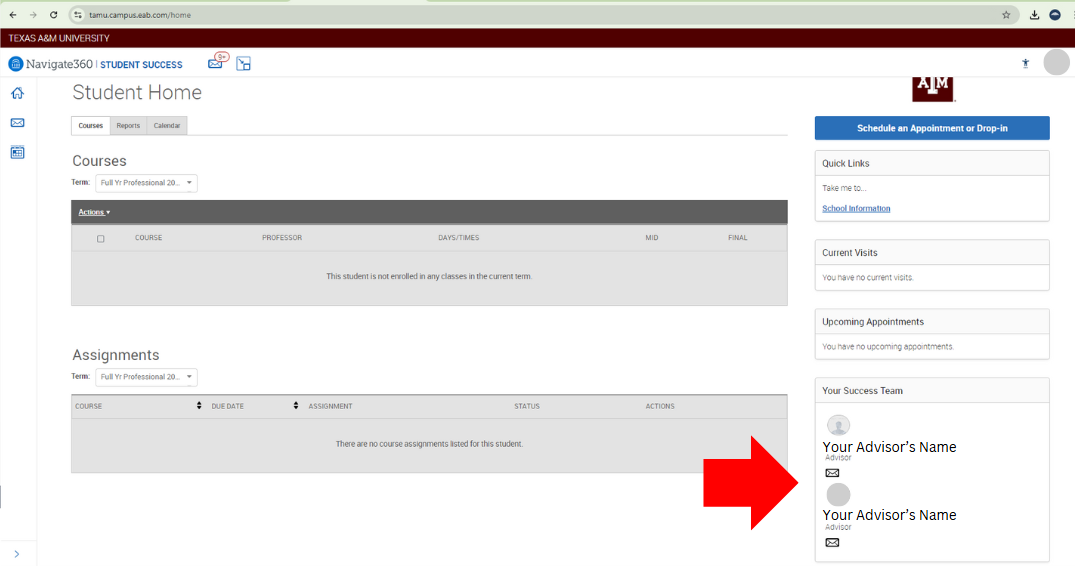Find my Advisor
Your advisor is the best resource for questions, and you shouldn't hesitate to contact them – that's what they're there for.
You can also look in NAVIGATE in the Howdy portal. Your advisor(s) will be listed on the home page, on the right, under a banner that reads "Your Support Team."
How do I find my academic advisor?
Select an option below to find an advisor in that school, college, or program. This is the advisor that you'll contact for most questions, such as dropping a class or changing your major.You can also look in NAVIGATE in the Howdy portal. Your advisor(s) will be listed on the home page, on the right, under a banner that reads "Your Support Team."

Advising links:
Academic Success Center or (979) 458-4900
Admissions or (979) 845-1060
Aggie One Stop or (979) 847-1787
Office for Student Success or (979) 458-6111
Transition Academic Programs or 979-845-5916
Colleges and Schools:
Agriculture & Life SciencesArchitecture
Arts & Sciences
Bush School
Education & Human Development
Engineering
Mays Business School
Nursing
Performance, Visualization, and Fine Arts
Public Health
If you need academic assistance, you can also contact the Academic Success Center, the University Writing Center, the Math Learning Center, or the Office for Student Success.
What can my academic advisor do for me?
Your academic advisor is a partner in your academic journey as you move through and graduate from Texas A&M University.Your academic advisor is a reliable sources of information about your major, one who can help you:
- Explore your interests
- Consider alternative majors or minors
- Select courses
- Add or drop courses
- Build your degree plan
- Meet your degree requirements
- Remove holds from your account
What should I do if I can't reach my advisor?
It might take longer than usual to contact your advisor during busy parts of the semester. Email is the best way to reach your advisor, but you should also consider attending drop-in sessions via Zoom or in-person (exact availability will depend on your department, major or program).How should I prepare for a meeting with my academic advisor?
Academic advising is a crucial part of your educational experience at Texas A&M University. To get the most out of your advising session, prepare for it: go into your meeting with an agenda of relevant topics and questions to make the best use of everyone's time.Some advisors provide students with directions for preparing for specific meetings, such as pre-registration advising. Others will expect students to come into the meeting with an understanding of their degree programs and the requirements that they have met so far. It's a good idea to make a list of the classes you have taken and check out the degree requirements in the Undergraduate Catalog.